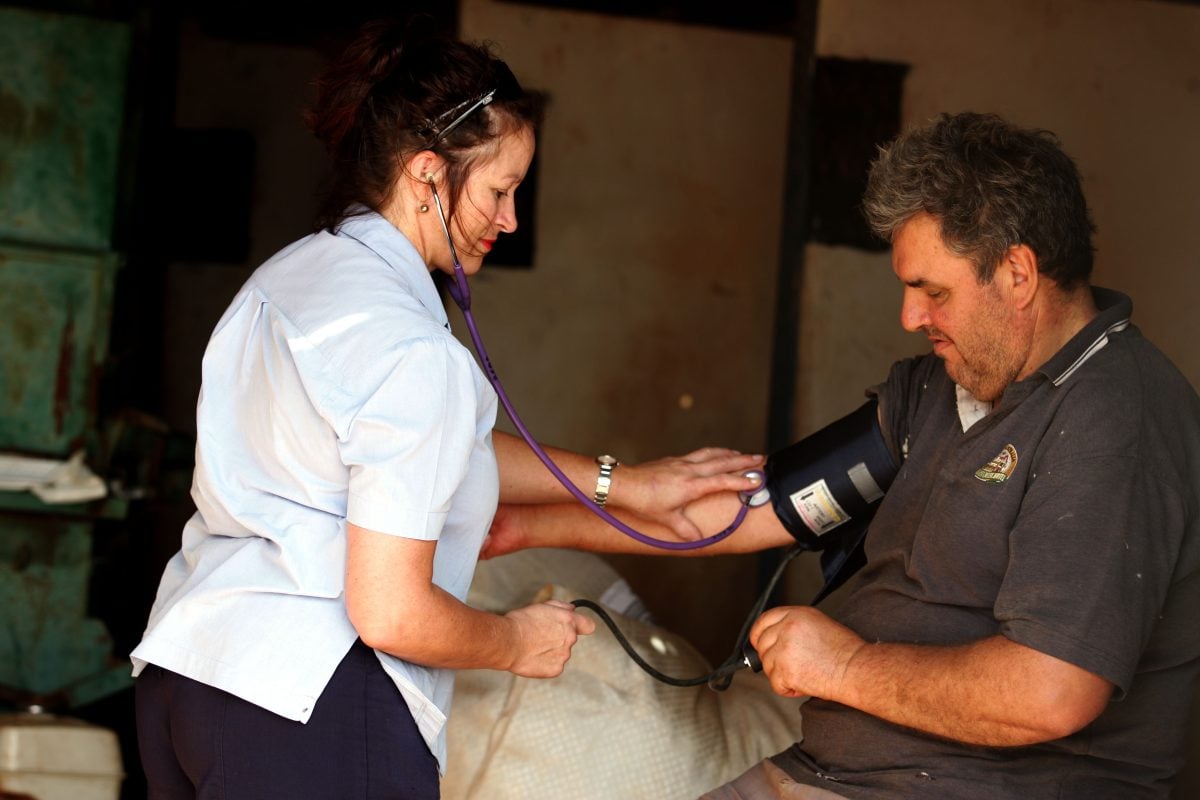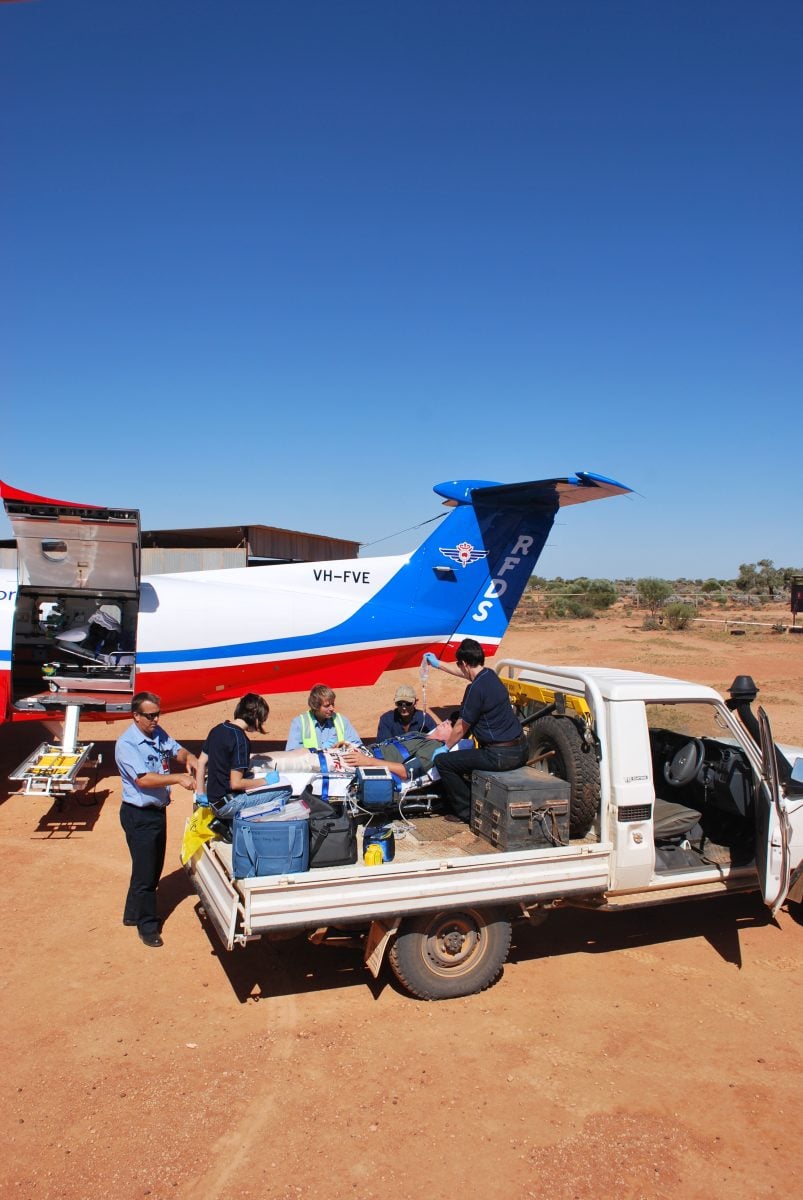The second annual Royal Flying Doctor Service ‘Best for the Bush, Rural and remote Health Base Line’ report has just been released. Presenting the latest data on the health of rural and remote Australians and evidence on service gaps, it identifies issues in urgent need of attention from service providers, funders, partners and policy makers.
Once again, the RFDS report demonstrates significantly poorer health outcomes and more limited access to primary health services in rural and remote Australia, leading to people from these areas getting sicker and requiring more urgent attention.
As compared with those in major cities, the report details that rural and remote residents are:
- 2.9x more likely to be hospitalised.
- 2.8x more likely to be hospitalised for reasons that are potentially preventable.
- 2.7x more likely to die from potentially avoidable causes.
High post-COVID demands
An analysis of RFDS emergency aeromedical retrievals shows a 9 per cent increase in the last financial year, transporting people from rural and remote areas to larger, metropolitan centres for urgent hospital care. The most common reason for retrievals remains heart, stroke and vascular disease.
Leading causes of death and illness are preventable, with the leading causes for death in Australia by remoteness being heart disease (1.9x higher than in major cities), and diabetes (second leading cause of death in remote areas, while only seventh in major cities).

People living in remote areas are 1.4X more likely to die from lung cancer and in very remote areas, 1.6X more likely.
Heart disease and diabetes can be prevented through effective primary healthcare and lung cancer and other cancers can be detected (and then treated) through screening services, but the RFDS says unless more comprehensive primary healthcare services are expanded into rural and remote areas, people in these communities will continue to experience higher levels of illness, avoidable hospitalisation, and earlier death.
Compared to those in major cities, females in very remote areas are likely to die 16 years earlier, and males in very remote areas are likely to die 13 years earlier.
Males and females have a mortality rate 1.6 times as high as city dwellers.
Indigenous health
Almost 60 per cent of Aboriginal and Torres Strait Islander Australians live in rural or remote areas of Australia and there is not only a gap in life expectancy between Indigenous Australians and non-Indigenous Australians of up to 12.5 years (that increases with increasing remoteness), but there is a further gap amongst Indigenous people depending on where they live.
Life expectancy for Indigenous males living in remote and very remote areas was 5.2 years lower than that of Indigenous males living in major cities (67.3 years compared with 72.5 years).
The equivalent comparison for Indigenous females was 4.2 years lower (71.3 years compared with 76.5 years).
26.9 per cent of retrieval patients were Indigenous, reflecting the high proportion of Indigenous Australians living in rural and remote areas.
Big numbers
In 2022-23, the Royal Flying Doctor Service conducted 36,937 aeromedical retrievals, equivalent to 101 aeromedical retrievals per day, or four per hour.
There were 137,995 RFDS face-to-face primary health consultations conducted, 28,889 primary health clinics held, 19,946 mental health consultations and 10,881 dental health consultations conducted.
Frank Quinlan, Federation Executive Director of the Royal Flying Doctor Service, said ‘our postcode should not be what determines access to health services. All Australians should expect reasonable access to primary healthcare services no matter where they live.
‘For Australians living in rural, remote and regional Australia, access simple services such as a nurse-led clinic, a GP, a dentist or a specialist is so much harder.’
The National Rural Health Alliance recently released a report detailing the comparative government health spend between major city residents and rural and remote Australia. This shows a gap of $6.55 billion, which is a health spend shortfall of $848 per person in rural and remote Australia
Struggling for parity
Given the challenges, those that live in rural and remote Australia should be seeing a greater investment in health service expenditure and not struggling to have a parity with those in our major cities, according to Frank Quinlan.

‘As we look to reform Medicare across the country, we need help people living outside the reach of mainstream services, who rely on services outside the Medicare system,’ he said.
‘This report recognises rural and remote communities need rural and remote solutions that are designed with local communities to respond to need.’
He hopes the RFDS report can bring government, service partners and communities together to solve health problems and ensure better outcomes for rural and remote communities.
‘Working alongside government, service partners and communities, this Best for the Bush report is continuation of the RFDS’ 100-year commitment to delivering evidence-based healthcare in regional, rural and remote Australia’, said Frank Quinlan.
‘This will only be achieved through accessible primary healthcare’.





